Capacity Development Programmes
Capacity development has been the major focus of BOBP, ever since its inception. BOBP-IGO envisions to redefine its capacity development programs so as expand its reach and connect, by leveraging technology and partnering with various national and regional agencies, so as to enable the member countries to adopt frontier tools and innovative approaches towards future-proofing the sector.
Marine fisheries management and coastal resource conservation are domains with large number of international treaties, declarations and voluntary instruments, to which the regional countries are committed. Drawing strength from extensive global experience and vast pool of resources from the region and different parts of the world, BOBP-IGO aids in understanding them and in ensuring better compliance and institutionalization. Our flagship programmes on the Code of Conduct for Responsible Fisheries (CCRF) and Ecosystem Approach to Fisheries Management (EAFM) are some of the best examples, towards this end.
The capacity development programs of the IGO are conducted at two levels.
National level upskilling: These programmes are conducted at the national level (or sub-national level, on need-based) and are aimed at improving the existing system by upskilling the institutional partners and other stakeholders. Some examples of in-country upskilling programmes are our training programmes on stock assessment in Bangladesh, audio-visual communication for Maldives and monitoring and reporting SDG-14 for Sri Lanka.
Regional Experience Sharing: BOBP recognizes that local solutions and success stories have great potential for replication and scape-up, leveraging the ecological-cultural homogeneity in the Bay of Bengal region. BOBP identifies the relative expertise of the countries and facilitates demonstration and dissemination of such solutions to the other members in the region. IGO facilitated visit of officials and industry representatives from Bangladesh to the white-leg shrimp farming in India and tuna fishers from India to Sri Lanka.
The programmes will be conducted in online mode and where feasible/essential, in hybrid mode.
The Capacity Development Programs are planned to be conducted innovatively, with flexible timesuiting to the convenience of the potential participants. The programmes will be conducted in online mode and where feasible/essential, in hybrid mode.
Please register your interest and preferred time slot, if any,
Click HereGENERAL INFORMATION
Mode of Delivery
The programme will be delivered online and will be conducted in English. The courses will be conducted by accredited experts from the region and abroad, in collaboration with various academic, research and development organizations and international developments funds. The participants will get online access to the programme and soft copies of all the training material and training outputs. There will be a special session on networking. Personal mentoring will be available during the programme and for one month from the end of the programme. All participants, on completion of the essential requirements, will receive Certificate of Participation from the BOBP-IGO and the partner agencies.
Post-Training Support
The participants will have access to all training resources from the exclusive training platform of BOBP-IGO, through their personal account. The Training Coordinators will follow-up with the participants for necessary hand-holding, for twelve months from the date of completion of the training.
Admission
Participation is open through nomination or voluntary application from eligible persons. Interested candidates may apply here and pursue eventually to secure official nomination from their respective authorities, for which BOBP-IGO will also facilitate. No fee would be applicable to Official Nominees from the concerned Ministries of Fisheries of the member countries of BOBP (limited to 10 from each countries).
Member-countries and cooperating non-member countries may support participation of additional candidates. NGOs are also eligible to attend the programme especially if they are looking towards building partnership with the Government and communities to deliver their objectives. The participation fee for such candidates for EDPs/MDPs is USD 200 (INR 14 000). Only 10 seats are available for sponsored candidates.
Executive Development Program (EDP)
EDPs are designed to cater to the capacity needs of senior officials in the government and policy makers; executives from public sector organizations; senior level researchers, academicians, representatives of civil society organizations and independent intellectuals who contribute in policy advo8cacy at the national and regional level.
EDP on Monitoring and Reporting Progress for Sustainable Development Goal 14: Life Below Water(EDP-SDG14
About the programme
Data compliance is a major obstacle to monitor SDG progress. Inadequate or ineffective reporting of the national initiative can lead to poor reflections on the effort of the countries in global forums.
Recent UN Asia and the Pacific SDG Progress Report 2021 noted that data is available for only 50% of the indicators and data is often not comparable. South Asia is one of such region. Data shortage isespecially pronounced in environmental goals like SDG 14, which deals with conservation and sustainably use the oceans, seas and marine resources for sustainable development.This EDP would develop capacity in collecting, collating and reporting data.
Expected Learning Outcome
On completion of the course, the participants will be able to:
- Appreciate the international reporting mechanisms and best practices thereof.
- Identify the inadequacies in the existing frameworks and create systems appropriate to the respective countries/regions.
- Implement and internalize the acquired knowledge in their respective spheres of work.
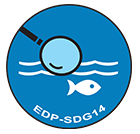
Period
Total learning hours: 25; Four hours a day; Spread over 10 Days, including three days break. Flexible time-slots will be provisioned to accommodate unforeseen commitments of the senior officials.
Register NowEDP on Enhancing Management Effectiveness of Spatial Conservation Measures(EDP-MESCM)
About the Programme
Spatial conservation measures in the marine environment, particularly the marine protected areas (MPA) play a vital role in conserving the biodiversity, habitat and ecosystems.They also aid in averting potential conficts among users by delineating the permitted and regulated activities.While the area under various spatial conservation measures has been on the rise, the effectiveness of their management has been debated often.
Management effectiveness in CBD framework implies "assessment of how well a protected area is being managed – primarily the extent to which it is protecting values and achieving goals and objectives.” However, effectively managing PAs is a challenging task as it needs multi-sectoral balancing such as ensuring proper monitoring, meeting community aspirations, evaluating ecosystem integrity, identifying threat, and managing fnance.The Convention on Biological Diversity (CBD) has set specifc target for the parties to CBD to implement management effectiveness evaluations within each Party's protected areas.
This MDP would break the silos and empower the offcials in enhancing their effectiveness in implementation of the MESCM. This program will bring in conservation and management expert in a single platform and build the competencies of the participants to address their recurring and persistent problems.
Expected Learning Outcome
On completion of the course, the participants will be able to:
- Internalize the PA management philosophy.
- Understand the nuances of sectoral balance in the management of Pas.
- Use early detection methodologies to minimize risks.
- Improve reporting and communication.
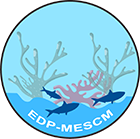
Period
Total learning hours: 40; Four hours a day; Spread over 15 Days, including two days of self-study break. Flexible time-slots will be provisioned to suit the convenience of the participants.
Register NowManagement Development Program (MDP)
MDPs are designed to cater to the capacity needs of middle-level officials in the government; executives from public sector organizations; senior and middle-level level researchers, academicians, representatives of civil society organizations and independent intellectuals who are actively engaged in fisheries resource management at the national and regional level.
MDP on Code of Conduct for Responsible Fisheries (MDP-CCRF)
About the Programme
CCRF is the grammar of fisheries management and provides a succinct understanding on various fisheries governance functions, their linkages and also the global framework. The MDP is meant to enable the officials to see the big picture while solidifying their ground actions.
Navigating the complexities of fisheries management needs providence and prudence. The 1995 Code of Conduct for Responsible Fisheries (CCRF) produced by the Food & Agriculture Organization of the UN (FAO) represents the global wisdom on best practices for fisheries management. It provides guidance to full range of management activities from fishing operation to stakeholder engagement to R&D strategies.
It will cover areas such as fisheries management, international treaties and conventions, stakeholder engagement, and policy making. This interactive programme is based on a problem solving approach where the participants will learn to apply different suites of best practices to analyse, understand and address the sectoral issues and developmental objectives. The programme is an enhanced version of the much popular Regional Training Course of CCRF of the BOBP-IGO for the junior and middle-level Officials under in which over 100 officials from different countries have been trained.
Expected Learning Outcome
On completion of the course, the participants will be able to:
- Appreciate the level of integration of the principles of CCRF in their respective regulatory frameworks for fisheries management.
- Understand the processes and mechanisms of enhancing the integration of CCRF principles in their day-to-day fisheries management activities.
- Enhance their effectiveness to address the reigning challenges such as combating IUU fishing, improving fisheries value chain and adapting to climate change.
- Implement and internalize the acquired knowledge in their respective spheres of work.
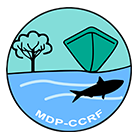
Period
Total learning hours: 30; Four hours a day; Spread over 10 Days, including two days break. Flexible time-slots will be provisioned to suit the convenience of the participants.
Register NowMDP on Ecosystem Approach to Fisheries Management (MDP-EAFM)]
About the Programme
EAFM is a systematic tool to implement the ideals of the CCRF and moving towards sustainability. It is accepted as a guiding principle for sustainable resource utilization. EAFM implementation shall be enhanced through integration in ICZM framework.
The EAFM process has been endorsed in various global forums such as the United Nations Conference on Sustainable Development, 2012 (Rio+20) and Sustainable Development Goals adopted in 2015.The purpose of the MDP-EAFM training is to sensitize participants on the concept and principles of the Ecosystem Approach to Fisheries Management (EAFM), and the planning skills involved in developing EAFM plans. The course is designed for fisheries officials especially those involved in capture fisheries planning and development. Participants will use a tested template to develop a draft EAFM plan for selected fisheries. Wherever possible, the course will focus on issues specific to the formulation of EAFM plan.
Expected Learning Outcome
On completion of the course, the participants will be able to:
- Plan for the holistic management of fisheries and reduce user group conflicts
- Work cooperatively with stakeholders and resolve fisheries issues and challenges more effectively.
- Understand the principles of co-management and strategies for fostering cross-sector coordination
- Practice the crucial skills of effective communication, facilitation and conflict management.
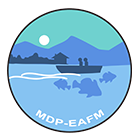
Period
Total learning hours: 30; Four hours a day; Spread over 10 Days, including two days break. Flexible time-slots will be provisioned to suit the convenience of the participants.
Register NowMDP on New Paradigms in Fish Stock Assessment (MDP-FSA)
About the Programme
FAO has stated that only 25% of the global catch comes from the numerically assessed stocks and monitoring catch in Bay of Bengal region is problematic due to predominance of small scale and multi-species fishery.
Stock assessment is an important tool for fisheries managers to manage and regulate fish stocks.This MDP aims at strengthening the core competencies of the filed officials from the development departments and young researchers involved in the process.
Expected Learning Outcome
On completion of the course, the participants will be able to:
- Appreciate the role of stock assessment in fishery science.
- Familiarize application of conventional stock assessment models.
- Introduction to the real time stock assessment methods.
- Use the assessments to estimate the total population or total biomass of the stock and define the current status and condition of the stocks.
- Practice tools for predictingthe response of the stocks to varying levels of fishing pressure.
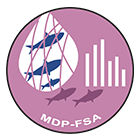
Period
Total learning hours: 30; Four hours a day; Spread over 10 Days, including two days break. Flexible time-slots will be provisioned to suit the convenience of the participants.
Register NowMDP on Development of Changing ClimateAdaptation Plan (MDP-CCPA)
About the Programme
The impacts of climate change are diverse and far-reaching. The fishers are facing an immense challenge to address the adversities arising from such changes. While the global efforts to mitigate the adverse impacts of climate change are underway, the major national and regional action requires is to prepare the adaptation plans, to prepare the communities for the likely eventualities. The programme is developedas refresher course for mid-career fisheries and environment officials and researchers to enable them to understand the process of developing an effective adaptation plans in their area of work in view of changing climate.
Expected Learning Outcome
On completion of the course, the participants will be able to:
- Comprehend nature, causesimpacts of climate change on fish biology, behaviour and catch pattern in the national and regional context
- Appreciate the various adaptation strategies and role of the government and the communities in implementing them
- Use the Sustainable Livelihood Approach to mitigate the risks and exploring opportunities.
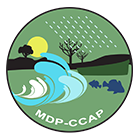
Period
Total learning hours: 25; Four hours a day; Spread over 8 Days, including two days break. Flexible time-slots will be provisioned to suit the convenience of the participants.
Register NowMDP on Greening the Fisheries Value Chain (MDP-GFVC)
About the Programme
Greening the fisheries sector is important from the environment perspective as well as to reduce the operational cost of the fishers across the value chain. This multi-disciplinary training programme will strive to equip the mid-career officials and researchers in the field of fisheries to prepare a roadmap for greening the fisheries value chain.
Fisheries consumed 40 billion litres of fuel in 2011 and generated a total of 179 million tonnes of CO2-equivalent GHGs and the emissions from the global fishing industry grew by 28% between 1990 and 2011 (https://doi.org/10.1038/s41558-018-0117-x). The fuel use has also increased due to increase area of operation, longer searching time, congestion at the berthing and landing place, etc. Therefore, with proper management strategy and application of scientific development, it is possible to reduce emission significantly. The program will bring on-board expertise from space science, engineering, naval architecture, fisheries science, economics, management and communication science to explore solutions for greening the fisheries value chain.
Expected Learning Outcome
On completion of the course, the participants will be able to:
- Appreciate the advancements in locating the potential fishing zones to reduce the scouting time, using remote sensing methods;
- Comprehend the suitable design modification of fishing vessels, uses of alternative energy; and use of artificial intelligence to manage value chain
- Develop business packages to take these benefits to artisanal fishers and create mechanisms for stakeholder buy-in.
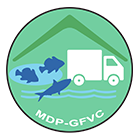
Period
Total learning hours: 25; Four hours a day; Spread over 8 Days, including two days break. Flexible time-slots will be provisioned to suit the convenience of the participants.
Register NowMDP on Business Case&DesignThinking for Development ProjectsPlanning (MDP-BCDT)
About the Programme
Mobilizing resources for developmental projects in the fisheries sector is a major challenge. Developing arguments for effective pitching and delineating cost-benefits in development projects is an art by itself, which calls building new perspectives and imparting specific skills among the officials in the fisheries department.
Any mid-career development executive in the government will be required to pitch a development idea to the policy makers; develop a proposal for acquiring grants from various national and multilateral funding agencies; and prepare a Detailed Project Report (DPR) for effective implementation of the project.
And this MDP aims to build the right perspectives and impart specific skills in each of the above aspects. The course will be delivered in two parts – first the participants will be provided hands-on exercises for development of business cases for an illustrative fisheries development project; second, they will be introduced to the concepts of design thinking; and finally the participants will be imparted necessary skills for integrating these two approaches effectively for building a development project.
A business case provides justification for undertaking a project, programme or portfolio. It evaluates the benefit, cost and risk of alternative options and provides a rationale for the preferred solution. In respect of fisheries sector, this could be a policy intervention, an investment project, a conservation programme or even a stakeholder meeting. In this programme, the participants will be taken through a guided step-by-step process to analyse a fisheries issue, develop alternative solution, evaluate and rankthe solutions and identify the best course of action. The participants will also be sensitized on the basic tenets of Design Thinking (DT) - a holistic paradigm of problem solving, which involves building a DT mind-set (attitude) and using DT toolset (skill). At the end of the course selected participants will get an opportunity to pitchtheir development project ideas to prospective funding agencies jointly with BOBP.
Expected Learning Outcome
On completion of the course, the participants will be able to:
- Network with experts ahead in the curve and gain from their professional insights with respect to each of the core functionalities of development project management.
- Acquire necessary skills to use appropriate techniques for prioritizing a development solution using business case approach and design thinking perspectives.
- Write grant-winning proposals for the development projects.
- Develop Detailed Project Reports (DPRs) for development projects with relative ease.
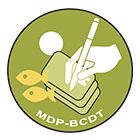
Period
Total learning hours: 30; Four hours a day; Spread over 10 Days, including two days break. Flexible time-slots will be provisioned to suit the convenience of the participants.
Register Now



